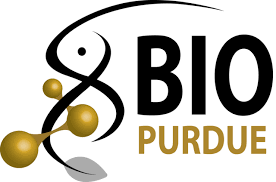Online Hours
Hours displayed in:Eastern Time (US & Canada)
About
The Department of Biological Sciences is the largest department in the Life Sciences disciplines at Purdue University. As part of the College of science, the department fulfills the teaching and research mission of Purdue University in areas of biological systems ranging from the molecular through ecosystem levels. As a widely recognized leader in scientific discovery the department’s research contributions inform both fundamental questions and complex problems across diverse areas of interest from cancer models to host-pathogen interactions to behavioral ecology. With over 60 faculty and approximately $17 million in annual research funding, we are large enough to provide considerable diversity of research interests but small enough to maintain close ties between students and faculty.
The research encompassing six research area concentrations, that Department of Biological Sciences fosters a culture supporting collaborations linking faculty, post-doctoral researchers, graduate students and undergraduates with colleagues both within Purdue University as well as nationally and internationally. The diverse nature of the Biological Sciences provides endless opportunities for cross-discipline partnerships with other research enterprises including those in the physical sciences, agriculture, engineering, education, and computational sciences.
Biology Education
| Chat Room | Time | Faculty | |
| 2 | 2:30 - 4pm | Pelaez | npelaez@purdue.edu |
| 2 | 2:30 - 4pm | Gardner | sgardne@purdue.edu |
With a focus on teaching and research on student learning, researchers in this area seek the enhance learning and promote student success by applying educational research to course and curricular design, teacher, pre-faculty, and faculty development, and outreach. This area transcends boundaries by working with other research areas to answer discipline-specific questions related to teaching and learning. Graduate coursework and teaching experiences develop disciplinary biology and learning science knowledge as well as expertise in science education theory and methods.
https://www.bio.purdue.edu/bio-education/index.html
Cell and Molecular Biology
| Chat Room | Time | Faculty | |
| 1 | 10-11am | Kasinski | akasinski@purdue.edu |
| 1 | 1-2pm | Allen-Petersen | ballenpe@purdue.edu |
| 1 | 2-3pm | Aguilar | claudio@purdue.edu |
| 2 | 4:00 - 5pm | Hanna | hannaja@purdue.edu |
Discoveries in this research are reveal the molecular basis of both normal and abnormal cell and tissue biology, focusing on cancer, regulation of gene expression, epigenetics of chromatin, non-coding RNA biology, cell biology and cellular dynamics, plant biology, developmental biology, and bioenergetics. Experimental approaches include cell signaling and differentiation, molecular biology, proteomics, genomics, genetics, and advanced cell imaging.
https://www.bio.purdue.edu/cell/index.html
Ecology and Evolutionary Biology
| Chat Room | Time | Faculty | |
| 3 | 2:30 - 3:30pm | Lucas | jlucas@purdue.edu |
| 3 | 3:30 - 4:30pm | Searle | searlec@purdue.edu |
The focus of this research area includes animal behavior and sensory ecology, ecology of emerging infectious diseases, evolutionary genomics, and ecological and evolutionary consequences of human impacts. Using laboratory, field, and computational methods, we study individuals, populations and communities both locally and globally. We have a strong commitment to graduate and undergraduate education and training. A key resource is the Ross Biological Reserve, a living laboratory of mature forest on the Wabash River.
https://www.bio.purdue.edu/ecology/index.html
Microbiology, Immunology, and Infectious Diseases
| Chat Room | Time | Faculty | |
| 1 | 11am - 12pm | Luo | luoz@purdue.edu |
Faculty affiliated with this research area conduct innovative basic research in the areas of cellular and molecular mechanisms of infectious disease, as well as the immune response and microbe-host interaction. They investigate microbial signaling systems, exploitation and host cell functions by pathogenic organisms, and mechanisms of protective host immune response to infection.
https://www.bio.purdue.edu/microbiology/index.html
Neuroscience and Physiology
| Chat Room | Time | Faculty | |
| 2 | 11am - 12pm | Suter | dsuter@purdue.edu |
| 2 | 1-2pm | Fekete | dfekete@purdue.edu |
| 3 | 4:30 - 5:30pm | Ready | dready@purdue.edu |
Scientists in this research area employ molecular and cellular biology, microscopy, electrophysiology, transgenesis, mutagenesis, experimental embryology, and behavior assessment to study the development, structure, function, and regeneration of the nervous system as well as fundamental systems including vision hearing, movement, and social interaction. We use different model organisms including mice, rat, chick, zebrafish, Drosophila, and Aplysia to tackle unsolved problems of development and disease of the nervous and endocrine systems.
https://www.bio.purdue.edu/neuroscience/index.html
Structural and Computational Biology, and Biophysics
| Chat Room | Time | Faculty | |
| 1 | 3-4pm | Tesmer | jtesmer@purdue.edu |
| 1 | 4-5pm | Noinaj | nnoinaj@purdue.edu |
| 1 | 5-6pm | Kihara | dkihara@purdue.edu |
| 2 | 10-11am | Gribskov | gribskov@purdue.edu |
| 3 | 11am - 12pm | Post | cbp@purdue.edu |
Research in this area concentrates on the structure, properties, and interactions of biological macromolecules and cellular structures across diverse biological systems including plant cell walls and cytoskeletons, membrane biochemistry, protein and nucleic acid structure, genomics, macromolecular complexes, viruses, and systems biology. This research are employs many experimental and computational approaches including NMR spectroscopy x-ray crystallography, cryo-electron microscopy and tomography, and high-performance computing.
https://www.bio.purdue.edu/structural/index.html
Support
All regular full-time graduate students receive support that includes exemption from tuition ad most fees. Principal sources of support are research appointments, fellowship, traineeships, and teaching appointments. A generously subsidized health insurance program is provided for full-time students and their families.




